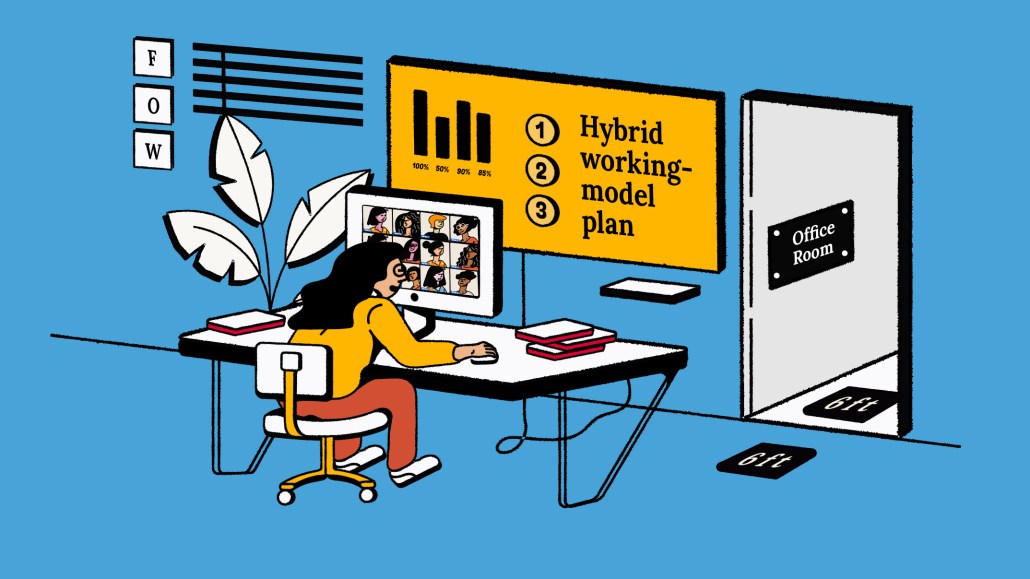Secure your place at the Digiday Media Buying Summit in Nashville, March 2-4

This story was first published by Digiday sibling WorkLife
Pre-Covid, employers didn’t think too much about the productivity question. Employees had their butts in chairs in the office for at least eight hours a day, which had to mean they were doing their jobs, right?
Not exactly.
But the return-to-office pendulum has swung back and forth so many times over the last year, that now the ability to actually see people physically in an office “working” has become the RTO war cry for business leaders who believe that WFH is to blame for productivity drop-offs.
But location is no proxy for real productivity. In reality, seeing people at their desks was, at best, a blunt metric for assessing what was getting done efficiently, and what was merely time spent at a screen.
“Many managers and executives have used being able to see someone as a management crutch,” said Rob Sadow, CEO and co-founder of hybrid work app Scoop Technologies. “The belief that just because I see you means that you’re working, I think we all know is not necessarily true. I’ve had days in the office where I was there and extremely unproductive, and days where I was remote and no one could see me but I was extremely productive.”
The issue of poor productivity measurement is universal. In the U.K., 37% of 2,000 desk workers surveyed said that their productivity is still measured on visibility, including hours spent in the office or online, according to new research from Slack. As a result, almost one third of the average day is lost to performative work that doesn’t contribute to company goals, but is simply done to appear productive.
To read the full story click here
More in Marketing

Pitch deck: Why Amazon believes its premium streaming inventory is worth the money
Amazon is pitching its DSP to make the case.

In Graphic Detail: The state of the marketing agency sector
Revenue figures from Omnicom, Publicis and Havas, and new employment stats, offer a snapshot on a quickly evolving industry.

Future of Marketing Briefing: The mental gymnastics of principal media
Welcome to the psychological CrossFit class of modern marketing. Here’s how marketers are learning to move through it.








